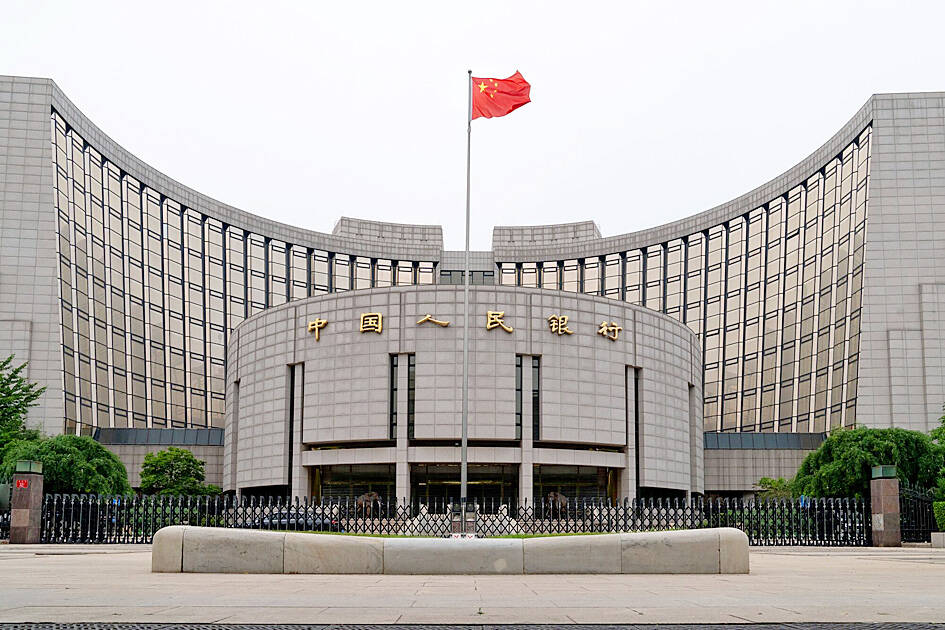China’s consumer-driven recovery is showing more signs of losing momentum as spending slows on everything from holiday travel to vehicles and homes, adding to expectations for more stimulus to support the economy.
Domestic travel spending during the Dragon Boat Festival holiday was lower than pre-COVID-19 pandemic levels, according to official data released over the weekend.
Home sales are below the level in previous years, while estimates for this month’s vehicle sales showed a drop from a year earlier.

Photo: Bloomberg
The rebound in consumption after China shed its COVID-19 controls has propelled growth so far this year, but confidence is weak and evidence is mounting that the economy might need more help.
After the central bank cut policy rates earlier this month, economists raised their expectations for more monetary and fiscal stimulus, and state-run media outlets have also published a series of articles highlighting possible avenues of support.
The holiday tourism data pointed to “fading post-COVID recovery momentum for in-person services,” Nomura Holdings Ltd chief China economist Lu Ting (陸挺) wrote in a research note on Sunday.
He noted the average spending per trip was about 16 percent lower than in 2019, “implying either a weaker intention to spend or less purchasing power.”
“As pent-up demand fades and the risk of an economic double-dip becomes more real in coming months, we expect in-person services consumption growth to weaken further,” Lu wrote.
Not all of the data suggests a slowdown, with box office revenue reaching the second-highest amount on record for the Dragon Boat Festival, Xinhua news agency reported.
However, other indicators provide evidence that spending is not gaining momentum.
Home sales in major cities were muted through the first few weeks of this month and over the holiday period, the 21st Century Business Herald reported, citing research analysts.
Passenger vehicle sales this month are expected to have dropped 5.9 percent from the same month last year, according to preliminary estimates released by China’s Passenger Car Association on Sunday.
Growing concerns over growth have fueled speculation about the possibility of increased stimulus this year.
Wang Huning (王滬寧) — the No. 4 official in the ruling Chinese Communist Party — last week held a meeting to discuss policy suggestions for reviving consumption. Then yesterday, two state-run securities newspapers floated a series of suggestions from analysts on policy options Beijing could consider.
One fiscal measure would be to accelerate the sale of special local government bonds — a key source of infrastructure funding — so that local authorities use most of their quota by the end of the third quarter, the China Securities Journal reported.
Meanwhile, Shanghai Securities News reported that further monetary easing — including cuts to interest rates and the amount of cash banks need to keep in reserve — is likely in the second half of the year.
However, any stimulus is unlikely to be large in scale, S&P Global Ratings chief economist for Asia-Pacific Louis Kuijs said.
The firm cut its forecast for China’s GDP growth this year to 5.2 percent from 5.5 percent, citing the uneven recovery.
The government could still consider measures like easing housing purchasing restrictions and mortgage down-payment requirements, along with possible “fiscal support for consumption,” Kuijs wrote in a report on Sunday.
While the “recovery in consumer confidence is slow,” some retail sales and discretionary spending data has held up, suggesting an expansion through the rest of this year and into next year, he said.

Intel Corp chief executive officer Lip-Bu Tan (陳立武) is expected to meet with Taiwanese suppliers next month in conjunction with the opening of the Computex Taipei trade show, supply chain sources said on Monday. The visit, the first for Tan to Taiwan since assuming his new post last month, would be aimed at enhancing Intel’s ties with suppliers in Taiwan as he attempts to help turn around the struggling US chipmaker, the sources said. Tan is to hold a banquet to celebrate Intel’s 40-year presence in Taiwan before Computex opens on May 20 and invite dozens of Taiwanese suppliers to exchange views

Application-specific integrated circuit designer Faraday Technology Corp (智原) yesterday said that although revenue this quarter would decline 30 percent from last quarter, it retained its full-year forecast of revenue growth of 100 percent. The company attributed the quarterly drop to a slowdown in customers’ production of chips using Faraday’s advanced packaging technology. The company is still confident about its revenue growth this year, given its strong “design-win” — or the projects it won to help customers design their chips, Faraday president Steve Wang (王國雍) told an online earnings conference. “The design-win this year is better than we expected. We believe we will win

Chizuko Kimura has become the first female sushi chef in the world to win a Michelin star, fulfilling a promise she made to her dying husband to continue his legacy. The 54-year-old Japanese chef regained the Michelin star her late husband, Shunei Kimura, won three years ago for their Sushi Shunei restaurant in Paris. For Shunei Kimura, the star was a dream come true. However, the joy was short-lived. He died from cancer just three months later in June 2022. He was 65. The following year, the restaurant in the heart of Montmartre lost its star rating. Chizuko Kimura insisted that the new star is still down

While China’s leaders use their economic and political might to fight US President Donald Trump’s trade war “to the end,” its army of social media soldiers are embarking on a more humorous campaign online. Trump’s tariff blitz has seen Washington and Beijing impose eye-watering duties on imports from the other, fanning a standoff between the economic superpowers that has sparked global recession fears and sent markets into a tailspin. Trump says his policy is a response to years of being “ripped off” by other countries and aims to bring manufacturing to the US, forcing companies to employ US workers. However, China’s online warriors